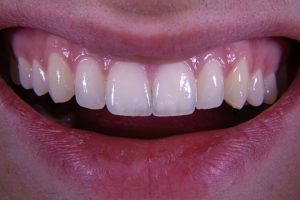Rapidly becoming one of the most popular ways to replace missing teeth, dental implants have now become a routine procedure in most dental establishments. While it is the job of your dentist to provide the best possible care at the dental office, the recipient of the implant plays just as important a role in ensuring the success of the different steps involved in the dental implant procedure.
To ensure the longevity of dental implants, it is important that one understands the significance of regular oral hygiene and post-dental implant care. Maintaining healthy gums helps in maintaining the bone structure that supports the implant. While it is impossible for the dental implant itself to decay, inadequate cleaning measures can lead to inflammation around the implant site. The first noticeable sign of such inflammation is bleeding, which is known as mucositis. While this is a reversible condition, it can progress to implantitis if left unchecked. Implantitis leads to bone loss and is not reversible. Loss of bone around the implant eventually leads to loss of the dental implant itself.
Table of Contents
Dental Implant Care After Surgery
The dental implant surgery is an out-patient procedure and recipients of the implant can go home the very same day. Your dentist will ask you to keep certain pointers in mind when caring for the surgical site at home.
- It is normal to experience some pain and soreness around the dental implant site when the local anesthesia wears off. Painkillers and cold compresses provide great relief at such times. You may also notice some amount of swelling or inflammation at the surgical site, which reaches its peak around 2 or 3 days after the surgery. This is a completely normal part of the healing process.
- Do not disturb the surgical site with your fingers or your tongue. It is, however, important to keep your mouth and the area around the wound clean. Saltwater rinses a couple of times a day is the best type of mouthwash to use after getting dental implant surgery. Continue to brush your teeth but avoid the site of the implant.
- You will be asked to avoid consumption of all kinds of hot drinks or hot food for the first 48 hours; it is also advisable to remain on a liquid diet. After the first few days, patients can resume eating soft foods like mashed potatoes, fruit purees, porridge, Proper healing of the wound requires a nutrient-rich intake of food and drinks.
- Take plenty of rest. Smoking should be avoided at all costs until wound healing is complete, as it interferes with the healing process.
- Continue to go to your dentist for routine check-ups.
At-Home Measures for Cleaning Dental Implants
Toothbrushes & Interproximal Brushes:
Use a soft-bristled toothbrush to avoid damaging the surface of the implant. Interproximal brushes can be used to clean the plaque from around the implant and other areas where the toothbrush cannot reach. Use low-abrasive toothpaste and make sure all surfaces of the dental implant, both and around and under it, are clean.
Dental Floss:
Dental floss is an important cleaning aid that should be used in accompaniment to the toothbrush. While the type of floss doesn’t matter when used on natural teeth, it is advisable to use unwaxed floss for implants. Talk to your dentist about the type of interdental cleaning aids to use for a dental implant.
Protective Appliances:
If you suffer from habitual clenching or night-time grinding, your dentist may advise mouth-guards to be worn during sleep. Excessive occlusal load on the dental implant can damage it over time and wearing mouth-guards can help redistribute this load. If your dental implant is placed next to natural teeth, you may also be given retainers to avoid the development of open contacts between the implant and the tooth.
Professional Cleanings for Dental Implants
Apart from maintaining good oral hygiene at home, it is also important to go see your dental hygienist for professional cleanings every few months. Periodic deep cleaning of the dental implant helps remove plaque build-up from around the implant and the surrounding tissues, which may not be done adequately at home.
Visit Brooklyn Blvd. Dental for more information about the dental implant procedure and allow our brilliant team to assist you with all your queries.







